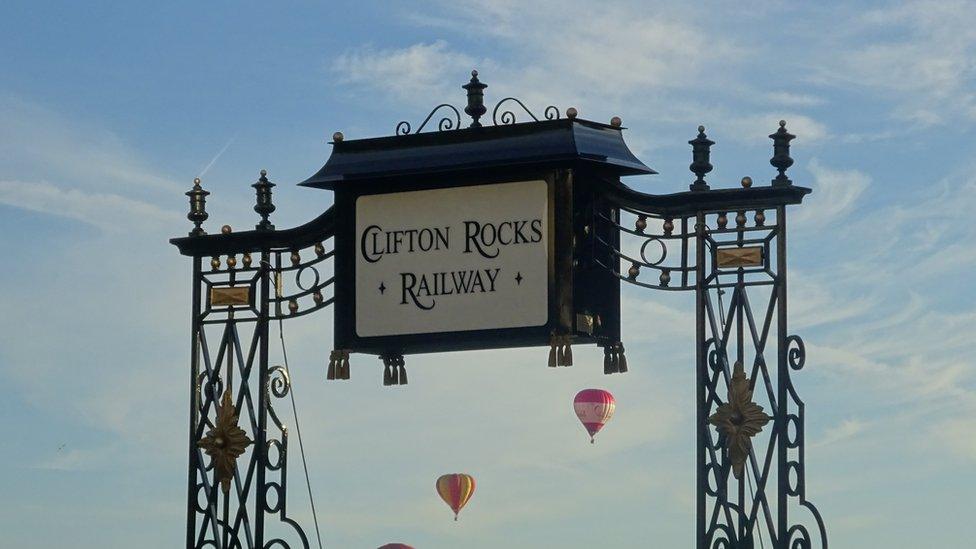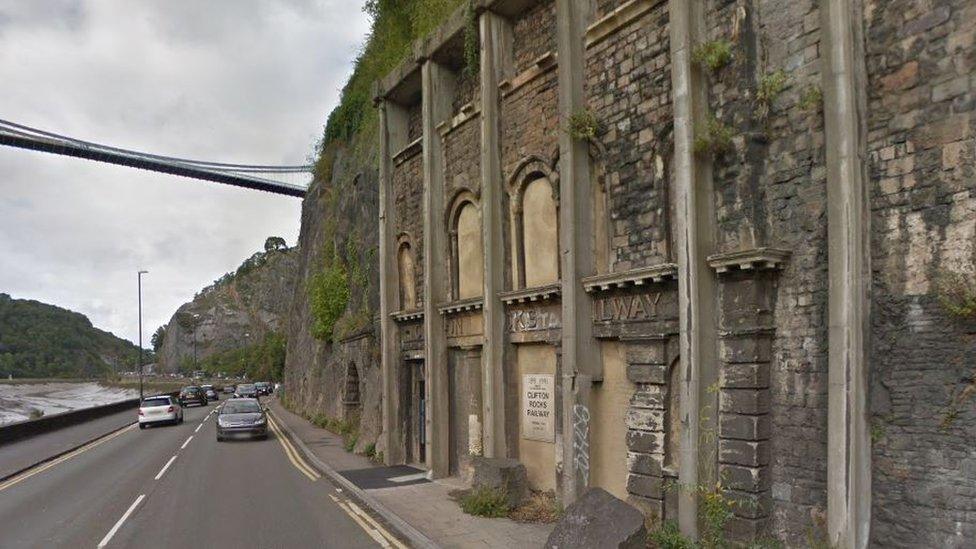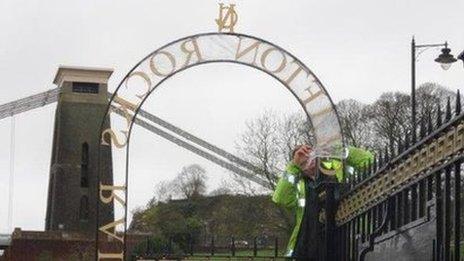Museum plan for Bristol's Clifton Rocks Railway revealed
- Published

The former railway connects Clifton to the Portway
A former railway which was used as a secret transmission base for the BBC during World War Two could be turned into a museum.
Ian Johnson has bought the top section of Clifton Rocks Railway and wants to open the museum to chart its history.
The tunnel, carved out of Avon Gorge Rock and connecting Clifton to the Portway, was shut in 1934. Volunteers have been restoring it since 2005.
Mr Johnson also hopes to renovate the facade on the Portway entrance.
It was feared BBC Broadcasting House in London would be bombed during the war so a studio, control rooms and transmitting equipment were installed in part of the complex in 1941.
Although the studio was never used, thousands of programmes in many different languages were routed via the control room.

The plan also includes renovating the façade on the Portway
At present the venue is only open for special events but Mr Johnson has bought much of the complex and says he wants the museum to be operational seven days a week.
He said: "The Clifton Rocks Railway is unique in both operating as a funicular, and playing a really important role in World War Two."
Maggie Shapland, from the Clifton Rocks Railway Trust, said while it was "very early days" she was pleased Mr Johnson's ideas were "broadly in line" with the trust's.
"We are very privileged to be asked to advise and help with the project and take it to its next level as a museum experience," she added.
- Published8 January 2015
